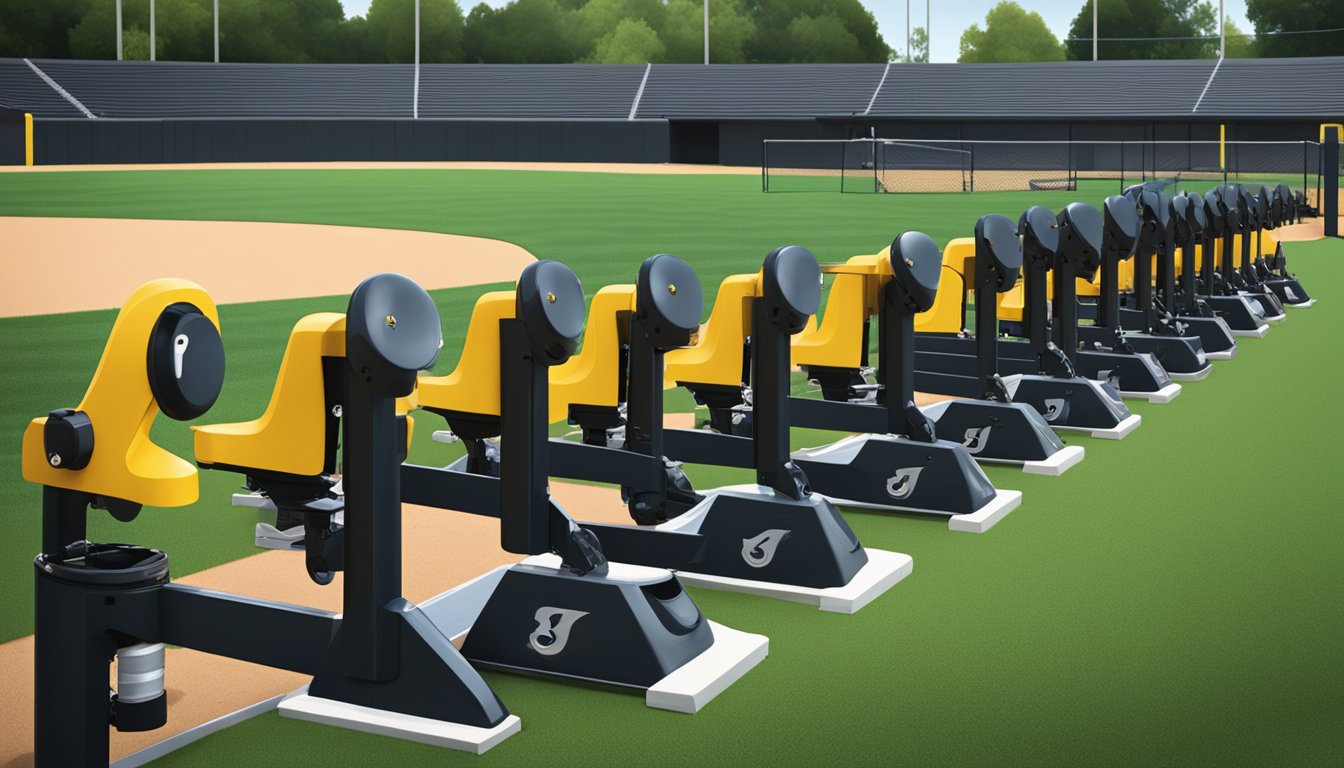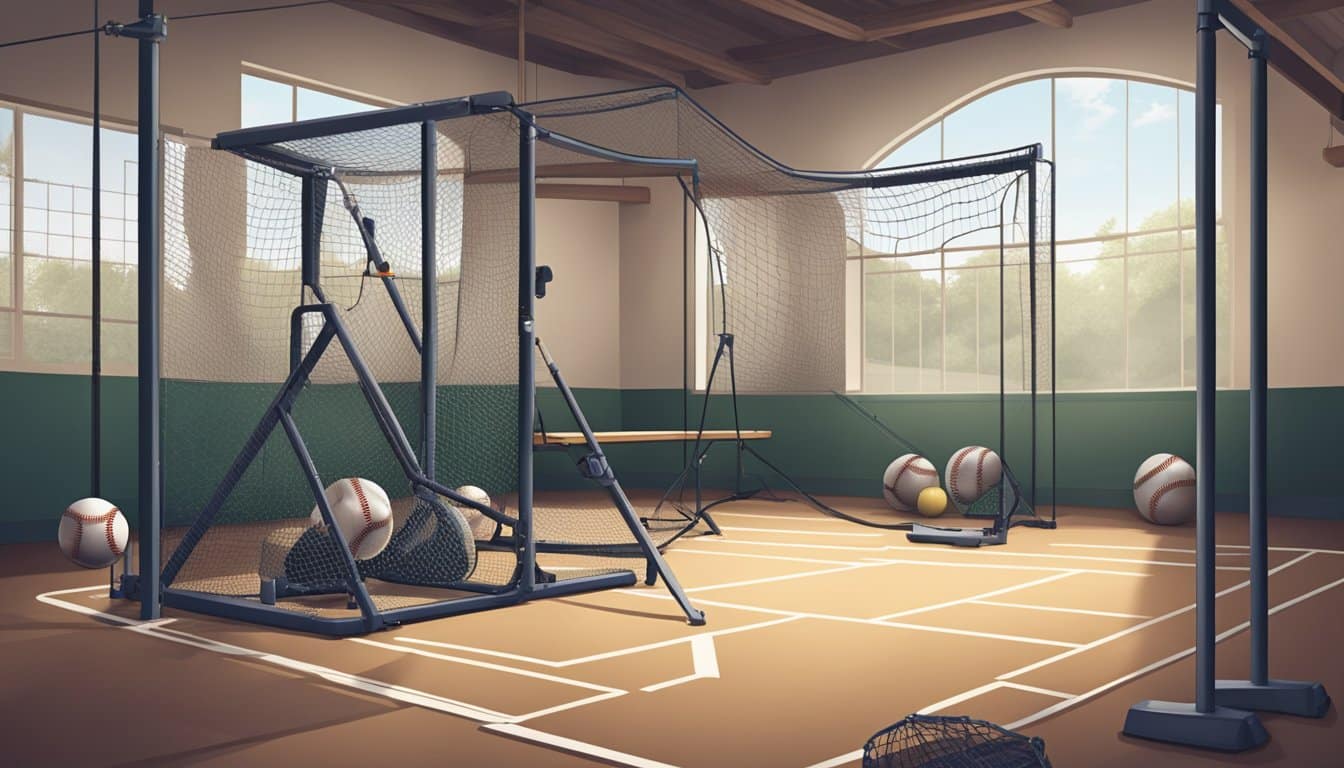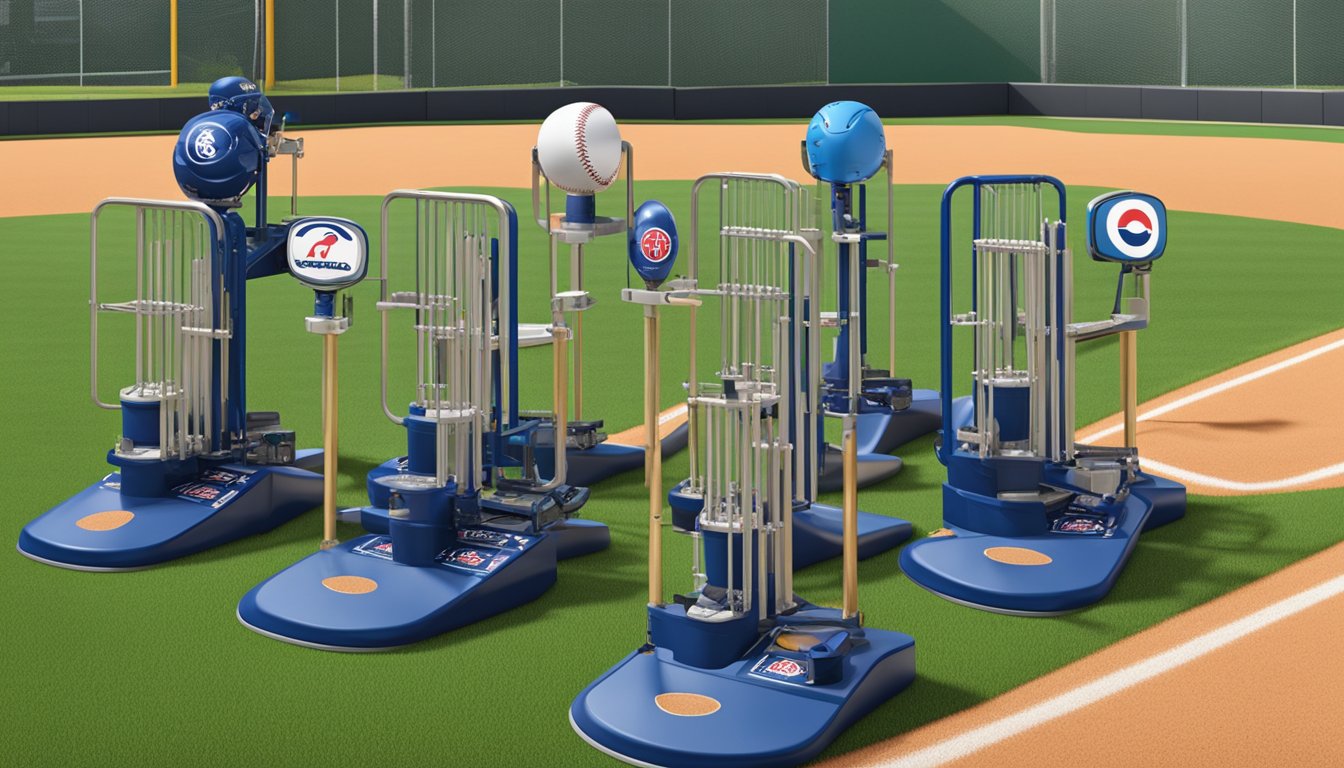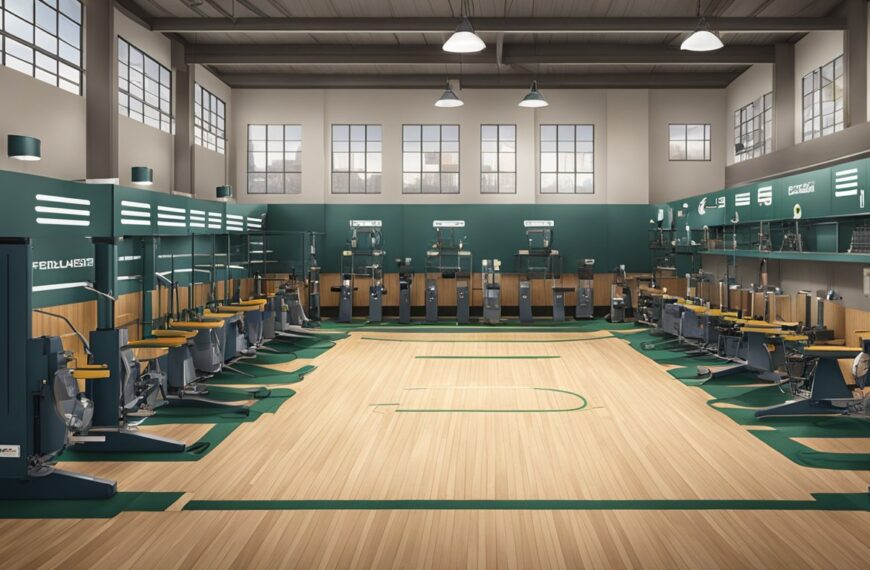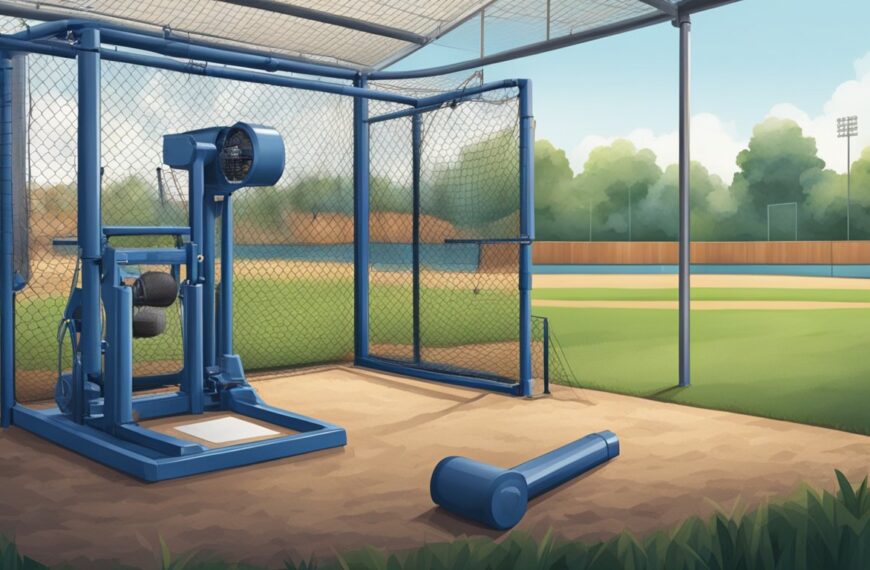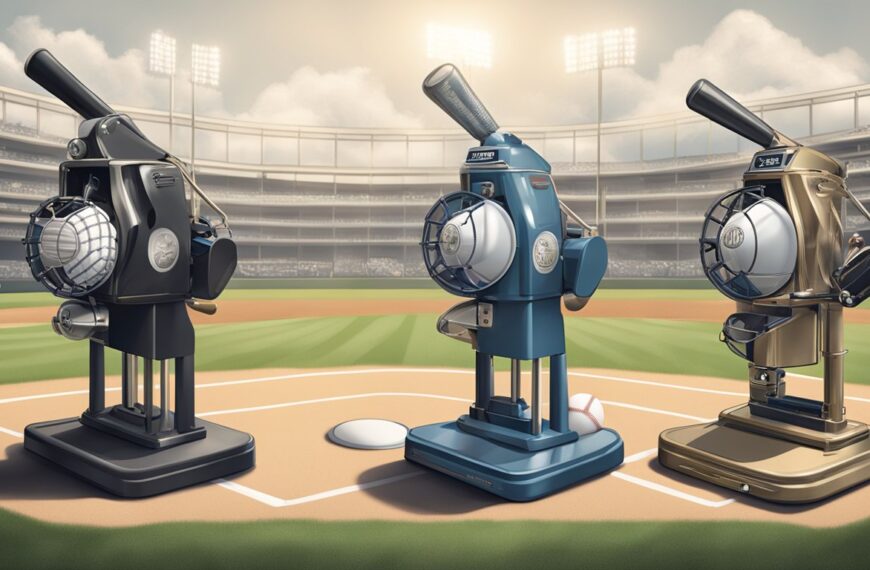In the ever-evolving world of youth baseball, selecting the perfect pitching machine is crucial for developing young talent. With technological advancements and a variety of models available, it’s vital to understand the distinct features and benefits of each machine. Whether for little league players or those preparing to make the jump to higher levels, pitching machines offer consistent and reliable pitching, enabling batters to improve their hitting techniques effectively.
Choosing the right pitching machine involves considering factors like adjustability, pitch speed, and the type of balls used. Additionally, safety features and ease of maintenance are also important considerations for parents and coaches alike. By comparing different models and understanding their specific capabilities, coaches can greatly enhance the quality and productivity of practice sessions.
Key Takeaways
- Pitching machines provide consistent pitching for effective youth baseball practice.
- Selecting a machine requires examining various technical features and settings.
- Safety and maintenance are important when choosing and using pitching machines.
Choosing the Right Pitching Machine
When selecting the best pitching machine for youth baseball, one must assess features, ensure appropriateness for young players, and consider budget constraints for optimal training equipment.
Key Features to Look For
The ideal pitching machine should have a variable speed range to accommodate different skill levels, allowing players to improve their hitting skills and hand-eye coordination gradually. Quality is paramount; it should be durable to withstand repetitive use. Portability is also crucial for ease of transport to various practice locations. The inclusion of an automatic ball feeder can enable solo practice sessions, enhancing the training experience.
- Speed Range: 20 – 70 MPH
- Durability: High-quality materials
- Portability: Lightweight, compact design
- Extra Feature: Automatic ball feeder
Considerations for Youth Players
Pitching machines for youth players should focus on safety and adaptability. Lower speed settings are vital for beginners to develop their mechanics safely, while higher settings challenge more advanced players. A machine that can be used for fielding drills as well as batting practice provides a comprehensive training tool, fostering overall athletic development.
- Safety: Enclosed wheel design
- Adaptability: Adjustable pitch angle
- Versatility: Suitable for batting and fielding practice
Budget and Price Range
The price of pitching machines can vary widely, so identifying the best value pitching machine within a budget is key. Balancing cost with the essential features and quality helps in making a prudent purchase.
- Economical Option: $200 – $500
- Mid-Range: $500 – $1000
- High-End: $1000+
When considering these factors, buyers are guided towards making informed decisions that ensure the selected pitching machine meets the needs of youth players and provides the best possible training assistance.
Popular Pitching Machine Models
Selecting the right pitching machine can greatly enhance a young player’s batting practice experience. This section covers various models that are celebrated for their reliability and performance catered to youth baseball.
Single and Dual Wheel Machines
Single and dual wheel machines offer consistent pitches and are a favorable choice for youth training. The Heater Deuce is a dual wheel machine known for providing fastball and curveball options. It can pitch up to 75 mph and offers a realistic baseball experience. In contrast, The Jugs PS50 Baseball Pitching Machine is a single-wheel offering providing speeds up to 50 mph, capable of throwing a variety of pitches.
- Heater Deuce 95: This advanced model can reach speeds up to 95 mph.
- Louisville Slugger Blue Flame Pitching Machine: This manual machine is known for its consistent speed and accuracy.
Three-Wheel Machines
Three-wheel machines provide enhanced visibility and pitch accuracy.
The Junior Hack Attack is an exemplar three-wheel pitching machine with the capability to throw strikes, curveballs, and sliders. It can simulate pitches up to 70 mph. The additional wheel allows for greater pitch variety and the realistic timing of pitches.
- Hack Attack: Offers more advanced settings, suitable for various levels.
- Three Wheel Pitching Machines: Known for their high level of accuracy and consistency.
Specialized Pitching Machines
Specialized machines cater to specific training needs such as softer pitches or smaller balls.
The Zooka is a portable machine that caters to youth leagues with its ease of use and safety features. The Iron Mike series is a robust, arm-style pitching machine that mimics a pitcher’s motion, which can be pivotal for hitter timing.
- Blue Flame & Black Flame: Both are manual machines that can be used for various drills without the need for electricity or batteries.
- Franklin Sports MLB Electronic Baseball Pitching Machine: This is an automatic, electronic machine known for its ease of use, making it ideal for young beginners.
By incorporating one of these popular models into practice, youth players can drastically improve their hitting skills with consistent and adaptable pitching.
Pitching Machine Benefits
Pitching machines present a significant advantage for youth baseball players, particularly in skills development, offering versatility, and assuring quality through durability and warranty.
Skills Development
Youth baseball players greatly benefit from the consistent repetition provided by pitching machines, enhancing their hitting skills and hand-eye coordination. Training facilities utilize machines for disciplined practice, allowing players to focus on specific mechanics. A pitching machine can be set to deliver pitches at varied speeds and velocities, enabling batters to practice timing and precision against fastballs, breaking balls, and even curveballs.
Versatility and Adjustability
Pitching machines are inherently versatile, making them an invaluable asset for baseball training. They are designed to throw a spectrum of pitches, including fastballs, curveballs, and breaking balls. Additionally, they can simulate fly balls, pop-ups, and ground balls for fielding training. The adjustability factor allows for changes in speed and trajectory, meeting the needs of players with different skill levels and facilitating a comprehensive training experience.
Durability and Warranty Considerations
Finally, the durability of a pitching machine is paramount for sustained use in rigorous practice environments. High quality machines are constructed to withstand the wear and tear of frequent use. Moreover, reputable manufacturers offer warranties, sometimes extending up to a 5-year manufacturer’s warranty, ensuring that training facilities and individuals invest with confidence in a product that is made to last.
Enhancing Practice with Pitching Machines
Pitching machines have revolutionized youth baseball practice by enabling consistent pitch delivery and various pitch types, which are crucial for player development at any level.
Improving Offensive Skills
Pitching machines provide a consistent supply of pitches, including fastballs, changeups, and an array of breaking pitches like curveballs and sliders. This allows batters to work on their timing and bat speed. For example, a machine like the Sports Attack Junior Hack Attack can simulate both right-handed and left-handed pitches, offering left handed breaking balls which are particularly beneficial for batters to experience different pitch angles and speeds, crucial for hitting a live pitching scenario effectively.
Strengthening Defensive Abilities
Fielding drills incorporated with a pitching machine enable players to hone their defensive skills. Infielders can practice grounders and line drives, improving their footwork and reaction time. Using a machine like the FungoMan Automated Practice Machine, coaches have the advantage of executing repetitive fielding drills without the inconsistencies sometimes present in hand-hit fungo drills. This consistent repetition helps outfielders as well to practice outfield drills, ensuring they can track and catch fly balls from different angles enhancing their overall fielding proficiency.
Maximizing Training Sessions
A pitching machine maximizes training equipment utility during practice by enabling more repetitions in less time, which is essential for serious youth players in Little League and beyond. It provides a variety of pitches which is valuable for keeping catchers engaged as they perfect their stance and receiving skills. With limited practice time, the capacity of pitching machines to simulate a vast range of pitch types, including split fingers and sinkers, ensures that players have the opportunity to work on handling different scenarios, thus making their training sessions more efficient and productive. Coaches can utilize this tool to focus on specific areas of development for each player, making each practice session as fruitful as possible.
Technical Specifications and Settings
When it comes to youth baseball training, the technical capabilities of a pitching machine significantly influence both its usefulness and its effectiveness. Key features such as pitch speed and variety, power source, and ease of transport and setup play a critical role in matching a machine to a team’s or player’s needs.
Speed and Pitch Variability
Pitching machines for youth baseball in 2023 boast a speed range typically from 30 to 90 mph for fastballs, allowing players to progressively develop their hitting skills. Advanced models offer settings to throw various pitch types, including:
- Fastballs
- Sliders
- Changeups
- Breaking balls
Settings may allow for speed adjustments by increments, ensuring a tailored batting practice at each session.
Machine Power Source
The power source of pitching machines typically falls into two categories:
- AC power, requiring access to a power outlet, suitable for training facilities.
- Battery-powered pitching machines, offering greater portability for practice anywhere.
Battery life and rechargeability are important considerations, as they directly impact the duration and location of practice sessions.
Portability and Setup
The ease with which a pitching machine can be transported and set up is crucial for both coaches and players. Key portability features may include:
- Lightweight design
- Compact dimensions
- Built-in transport wheels
For youth practice, machines often feature a swivel-design base for quick directional adjustments, essential for simulating realistic game pitches and for practicing fielding of home run balls. Fast and intuitive setup helps in maximizing practice time on the field.
Maintenance and Safety
Proper maintenance ensures that youth baseball pitching machines retain their quality and durability, while adhering to safety guidelines is critical to protecting young players. Ensuring the best pitching machines are kept in optimal condition enhances their use and longevity.
Regular Care and Upkeep
Pitching Machine Inspection:
Before and after each use, one should inspect the machine for any signs of wear or damage.
- Check Components:
- Belts
- Wheels
- Motor
- Ball feeder
Cleaning Routine:
Regular cleaning of the machine is essential. Wiping down surfaces and removing dirt and debris from moving parts prevents malfunctions.
- Use a soft cloth
- Non-corrosive cleaners
Storage:
When not in use, store the machine in a cool, dry place away from direct sunlight to prevent weathering or degradation.
Safety Guidelines
Age and Speed Considerations:
Always match the machine’s speed settings to the age and skill level of the player to avoid injuries.
- Appropriate speed settings
- Skill-level considerations
Supervision:
An adult should always supervise the use of baseball pitching machines to ensure safety.
Protective Gear:
Players must wear the correct protective gear, including helmets and batting gloves.
- Helmets
- Batting gloves
Secure Placement:
The machine should be placed on a stable, level surface, and a safe distance from the batter and any other individuals.
- Check for stability
- Maintain a safety zone around the machine
By following these guidelines, one can preserve the quality and safety of youth baseball pitching machines, ensuring a safe and enjoyable experience for young athletes. Regular care and upkeep paired with strict adherence to safety protocols is non-negotiable for the responsible use of these training devices.
Product Comparisons and Reviews
Evaluating the top pitching machines for youth baseball involves an analysis of both professional insights and consumer experiences. This section reviews these perspectives, focusing on the best machines for serious youth players with an eye toward value, performance, and price.
Professional Reviews and Testimonials
Professionals in the baseball community often weigh in on the equipment they find most effective for developing players’ skills. The Heater Sports Deuce 95 has been lauded for its dual-wheel speed controls, allowing it to simulate a variety of pitches. Testimonials from youth coaches indicate this machine is a solid investment for players aspiring to reach the big leagues, with a price tag that reflects its advanced features.
In contrast, the Louisville Slugger UPM 45 Blue Flame Pitching Machine is frequently recognized as the best value pitching machine. It doesn’t require electricity or batteries, and coaches commend it for its consistent performance at a much lower price point, making it accessible for teams or families on a budget.
Consumer Ratings and Feedback
Feedback from actual users provides invaluable insights into the day-to-day utility of pitching machines. Here’s a brief overview in table format:
| Pitching Machine | Average Consumer Rating | Price Point | Notable Feedback |
|---|---|---|---|
| Heater Sports Deuce 95 | 4.5/5 | High | Praised for variable speeds and pitch types, durable construction |
| Louisville Slugger UPM 45 Blue Flame | 4.7/5 | Budget-friendly | Loved for ease of use, portability, and reliability |
Consumers emphasize the Louisville Slugger UPM 45’s ease of setup and use, ideal for younger players or less experienced coaches. Its affordability makes it stand out as a highly favored option. Meanwhile, the Heater Sports Deuce 95 is often noted for its capability to grow with the player, providing a more long-term solution for serious youth players committed to improving their game.
Frequently Asked Questions
In this section, readers will find answers to common queries regarding the selection and use of pitching machines in youth baseball.
How do I select the right pitching machine for youth baseball players?
When choosing a pitching machine for youth players, consider the machine’s adjustable speed settings, ball compatibility, and portability. A machine that can grow with the athlete, offering various pitching speeds and heights, is ideal.
What are the benefits of using a pitching machine for young athletes?
Using a pitching machine can offer consistent pitches, allowing young athletes to practice their swing reliably. It can also help improve batting technique and hand-eye coordination while increasing the number of practice swings within a session.
Which pitching machines are recommended for high school baseball training?
High school players typically benefit from more advanced machines, such as those that can simulate different pitch types and speeds. Machines like the JUGS Pitching Machine or the Hack Attack Baseball Pitching Machine are highly recommended for this level.
What are the best pitching machine options available for under $500?
Several affordable pitching machines provide good quality without breaking the bank. The Louisville Slugger UPM 45 Blue Flame and the Heater Sports Baseball Pitching Machine are both solid choices under $500, offering variable speeds and pitch options.
Can you recommend a pitching machine that is suitable for home practice?
For home practice, the Franklin Sports MLB Electronic Baseball Pitching Machine is an excellent choice as it is affordable, compact, and easy to set up. Also, the SKLZ Lightning Bolt Baseball Pitching Machine is suitable for players looking to improve their hitting at home.
What should I look for when purchasing a professional-grade pitching machine?
Ensure the professional-grade pitching machine can simulate various pitch types at different speeds and trajectories. Durability, warranty, and after-sales service are important factors. Brands like ATEC and Rawlings are known for providing high-quality, professional-grade machines.

